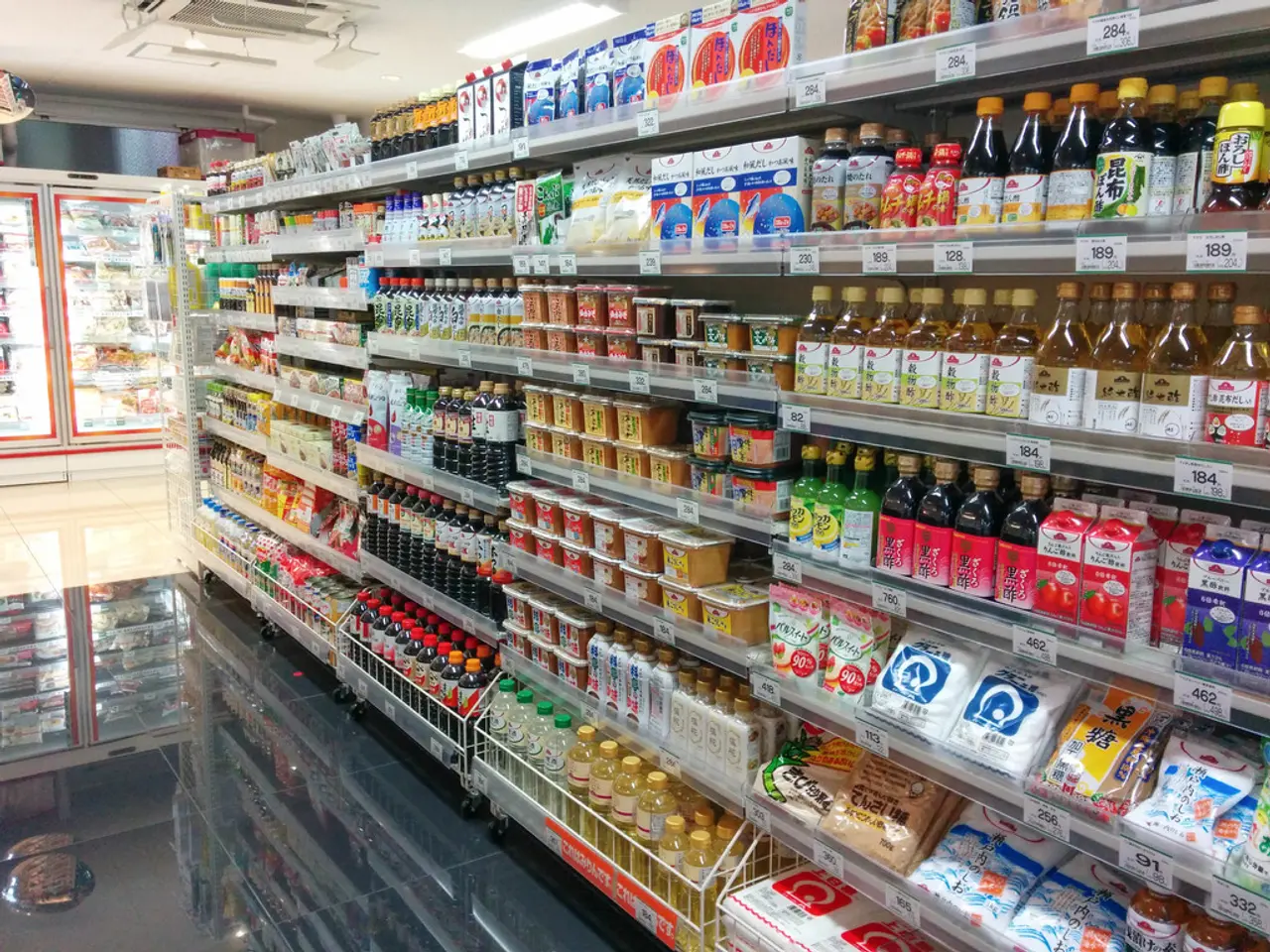Rising prices at Shein and Temu will be intensified further due to the implementation of the new de minimis rule
President Trump's suspension of the global de minimis exemption—which previously allowed duty-free entry for commercial shipments valued at $800 or less—will significantly impact Chinese retailers like Shein and Temu, as well as U.S. consumers.
This policy change, effective August 29, 2025, means that low-value shipments from all countries, including China, will now incur tariffs or flat fees ranging from $80 to $200 per item, depending on the country of origin[1][2][3][4]. This ends the previous exemption that had allowed many low-cost goods to enter the U.S. duty-free.
Impact on Chinese retailers like Shein and Temu:
These companies, which heavily rely on shipping low-cost items to American customers, will face higher costs due to tariffs. This is expected to reduce their competitiveness and potentially lead to increased prices or decreased sales volume in the U.S. market[2][4].
The suspension follows earlier restrictions targeting China and Hong Kong starting in May 2025, now extended globally, intensifying challenges for these platforms[1][3][4]. The policy aims to curb deceptive shipping practices, tariff evasion, intellectual property theft, and illegal shipments, concerns that have previously implicated shipments from China[1][2][3].
Impact on U.S. consumers:
Consumers will likely face higher prices on low-cost imported goods, particularly from Chinese platforms known for affordable fashion and goods[2][4]. Products that previously fell under the duty-free $800 threshold will now be subject to tariffs or fees, increasing the total cost at purchase or import[3][4].
The change could reduce the availability or increase the lead times of inexpensive goods that are popular on e-commerce platforms like Shein and Temu[4].
The Trump administration justifies the change by citing national security, economic, and public health reasons, including the prevention of fentanyl trafficking and protecting American workers and businesses[1][2][3]. The volume of shipments previously classified as de minimis had surged dramatically, resulting in significant lost revenue for the U.S. government[1].
In summary, the suspension of the global de minimis exemption is expected to raise costs for Chinese retailers shipping to the U.S., increase prices for American consumers on low-cost imports, and tighten customs enforcement to address security and economic concerns[1][2][3][4].
Notably, the suspension applies to goods coming from every country around the world, not just China and Hong Kong. The Customs and Border Protection (CBP) processes nearly 4 million duty-free de minimis shipments a day[5]. A federal trade court this week declined to block Trump's elimination of the de minimis exemption on goods from China[6].
Trump issued an executive order stating that many shippers evade law enforcement and hide illicit substances in imports, and the risk of "evasion, deception, and illicit-drug importation are particularly high for low-value articles that have been eligible for duty-free de minimis treatment." Most of those de minimis shipments come from China and Hong Kong[1][6].
Some of Temu's American buyers subsequently complained of higher prices and items were quickly out of stock after the shipping model overhaul[7]. The Trump administration's suspension of the de minimis exemption is part of a broader effort to strengthen border security and protect American consumers and businesses.
[1] https://www.whitehouse.gov/briefings-statements/president-donald-j-trump-issues-executive-order-strengthen-border-security-protect-american-consumers-businesses/ [2] https://www.reuters.com/article/us-usa-trade-shein/trump-s-tariff-hike-on-china-could-hurt-discount-retailer-shein-idUSKBN278279 [3] https://www.cnbc.com/2020/08/13/temu-chinese-retailer-to-overhaul-shipping-model-to-comply-with-trump-tariff-changes.html [4] https://www.cnbc.com/2020/08/28/trump-tariffs-to-hit-chinese-retailers-like-shein-and-temu-hard-analysts-say.html [5] https://www.cbp.gov/newsroom/stats/cbp-statistics [6] https://www.reuters.com/article/us-usa-trade-shein/trump-s-tariff-hike-on-china-could-hurt-discount-retailer-shein-idUSKBN278279 [7] https://www.cnbc.com/2020/08/28/trump-tariffs-to-hit-chinese-retailers-like-shein-and-temu-hard-analysts-say.html
- The suspension of the global de minimis exemption could negatively impact Chinese retailers like Shein and Temu, as they will have to bear higher costs due to tariffs, potentially leading to increased prices or decreased sales volume in the U.S. market.
- As a result of the global de minimis exemption suspension, U.S. consumers may face higher prices for low-cost imported goods, particularly from Chinese platforms known for affordable fashion and goods, due to the application of tariffs or flat fees on products that previously fell under the duty-free $800 threshold.




